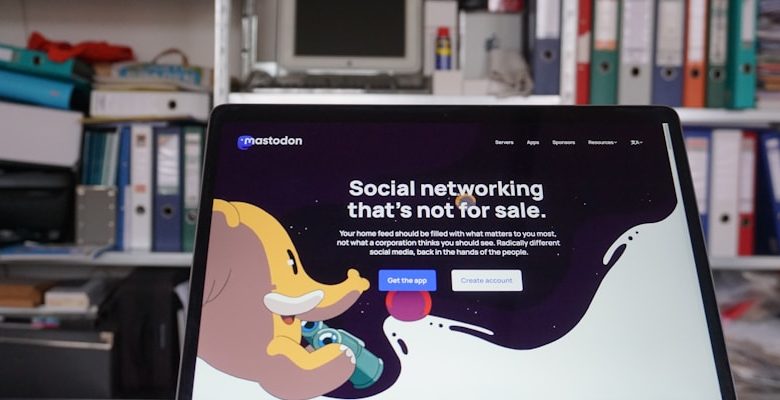Exploring the Benefits of Decentralized Social Media Platforms

- Understanding the concept of decentralization in social media
- Advantages of user privacy and data ownership in decentralized platforms
- Exploring the potential for censorship resistance in decentralized social media
- The role of blockchain technology in creating decentralized social media platforms
- Community-driven governance models in decentralized social networks
- Challenges and opportunities for mainstream adoption of decentralized social media
Understanding the concept of decentralization in social media
Decentralization in social media refers to the distribution of control and ownership of the platform among its users rather than being centralized under a single entity. This concept is gaining traction due to the growing concerns over data privacy, censorship, and manipulation on traditional social media platforms.
By utilizing blockchain technology, decentralized social media platforms offer users greater autonomy over their data and content. This means that users have more control over who can access their information and how it is used. Additionally, decentralization helps in preventing censorship and manipulation by removing the central authority that typically governs traditional social media platforms.
Furthermore, decentralized social media platforms promote transparency and trust among users by providing a secure and immutable record of all activities on the platform. This fosters a more authentic and open environment for communication and engagement.
Advantages of user privacy and data ownership in decentralized platforms
User privacy and data ownership are essential elements of decentralized platforms that offer significant advantages over traditional centralized social media networks. By leveraging blockchain technology, decentralized platforms empower users to have full control over their personal information, ensuring that their data is not exploited or misused by third parties. This enhanced level of privacy gives users peace of mind knowing that their sensitive information is secure and protected.
Furthermore, data ownership in decentralized platforms allows users to monetize their own data by choosing to share it with selected parties in exchange for rewards or incentives. This shift in ownership dynamics disrupts the traditional model where social media companies profit off users’ data without offering any compensation. By giving users the ability to control and benefit from their data, decentralized platforms promote a more equitable and transparent ecosystem.
Overall, the advantages of user privacy and data ownership in decentralized platforms contribute to a more secure, fair, and user-centric social media experience. As the demand for privacy and control over personal information continues to grow, decentralized platforms offer a compelling solution that aligns with the values of autonomy and empowerment in the digital age.
Exploring the potential for censorship resistance in decentralized social media
Decentralized social media platforms offer a promising solution to the issue of censorship in online content. By distributing data across a network of nodes rather than storing it on a central server, these platforms make it much more difficult for a single entity to control or restrict the flow of information. This decentralized nature provides a level of censorship resistance that traditional social media platforms simply cannot match.
One key advantage of decentralized social media platforms is that they allow users to have full control over their own data. Instead of relying on a central authority to manage and store user data, individuals can store their information locally or on a network of nodes. This means that users can choose what information they share and who they share it with, without fear of censorship or manipulation by a central authority.
Furthermore, decentralized social media platforms often utilize blockchain technology to ensure transparency and immutability of data. By recording all transactions on a public ledger that cannot be altered or deleted, these platforms provide a high level of security and accountability. This makes it much more difficult for malicious actors to censor or manipulate content, as any attempts to do so would be immediately visible to the entire network.
In addition to these technical advantages, decentralized social media platforms also promote a more diverse and inclusive online community. Without a central authority controlling what content is allowed or censored, users are free to express themselves without fear of reprisal. This leads to a more open and democratic online environment where a wide range of voices and perspectives can be heard.
Overall, the potential for censorship resistance in decentralized social media platforms is a major benefit that sets them apart from traditional social media platforms. By leveraging the power of decentralization and blockchain technology, these platforms offer a more secure, transparent, and inclusive online experience for users around the world.
The role of blockchain technology in creating decentralized social media platforms
Blockchain technology plays a crucial role in the creation of decentralized social media platforms. By utilizing blockchain technology, these platforms can operate without the need for a central authority, allowing users to have more control over their data and content.
One key benefit of blockchain technology in decentralized social media platforms is the increased security it provides. The decentralized nature of blockchain technology makes it more difficult for hackers to compromise user data, reducing the risk of data breaches and unauthorized access to personal information.
Additionally, blockchain technology enables transparency and immutability, ensuring that the information shared on decentralized social media platforms is secure and tamper-proof. This transparency can help build trust among users, as they can verify the authenticity of the content shared on the platform.
Moreover, blockchain technology facilitates peer-to-peer transactions, allowing users to directly interact with each other without the need for intermediaries. This direct interaction can lead to a more authentic and personalized user experience, as users can engage with each other in a more meaningful way.
Overall, blockchain technology plays a critical role in the development of decentralized social media platforms, offering increased security, transparency, and peer-to-peer interactions. As the demand for more secure and user-centric social media platforms continues to grow, blockchain technology is poised to play an even more significant role in shaping the future of social media.
Community-driven governance models in decentralized social networks
Community-driven governance models play a crucial role in decentralized social networks, allowing users to have a say in how the platform operates. These models empower individuals to collectively make decisions about the rules, policies, and features of the network. By giving users a voice in the governance process, decentralized social media platforms can better reflect the needs and values of the community.
One of the key benefits of community-driven governance models is that they promote transparency and accountability. When decisions are made collectively by the community, there is greater visibility into the decision-making process, which helps build trust among users. Additionally, community-driven governance can help prevent centralized control and ensure that power is distributed more evenly among participants.
Decentralized social media platforms that embrace community-driven governance models are often more resilient to censorship and manipulation. Because decisions are made collectively by the community, it is more difficult for any single entity to exert undue influence over the network. This can help protect against issues such as algorithmic manipulation, fake news, and data breaches.
Challenges and opportunities for mainstream adoption of decentralized social media
There are several challenges that decentralized social media platforms face when it comes to mainstream adoption. One of the main obstacles is the lack of awareness among the general public about the benefits of decentralized networks. Many users are accustomed to centralized platforms and may be hesitant to switch to a new system. Additionally, there is a need for more user-friendly interfaces and tools to make decentralized social media more accessible to the average person.
However, there are also many opportunities for decentralized social media to gain traction in the mainstream. For one, these platforms offer greater privacy and security for users, which is becoming increasingly important in today’s digital age. Decentralized networks also have the potential to give users more control over their data and content, empowering them in ways that centralized platforms do not.



